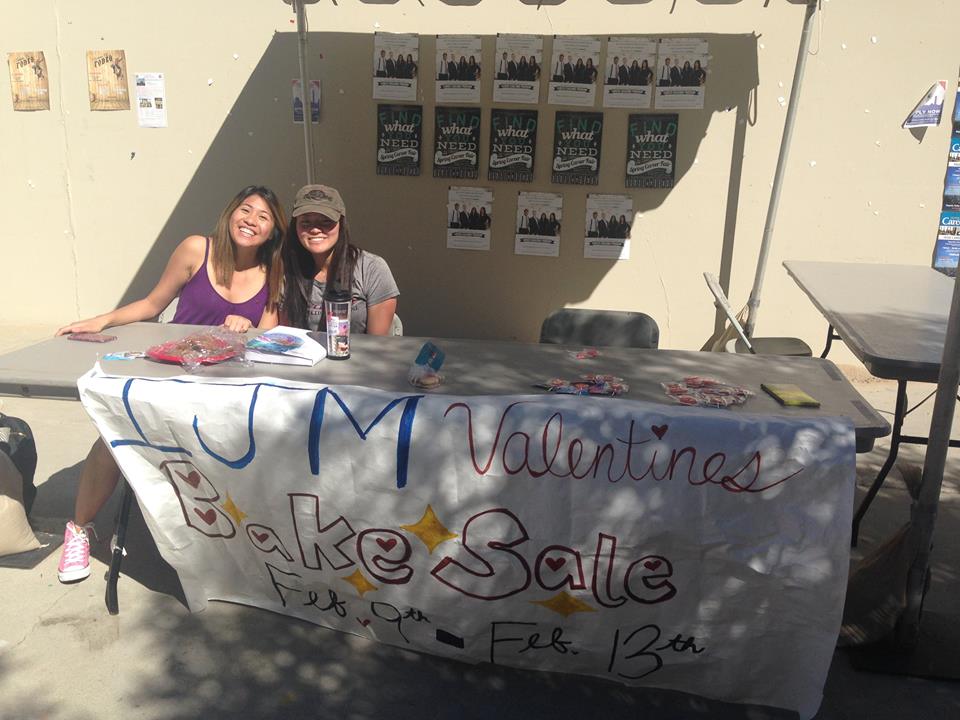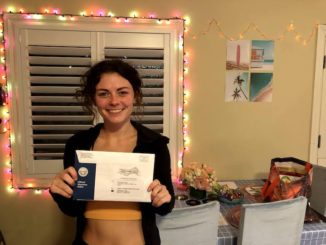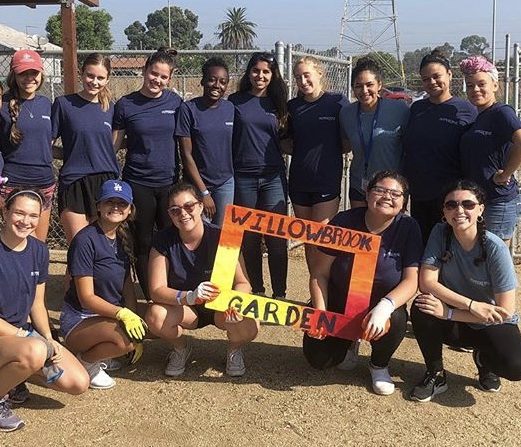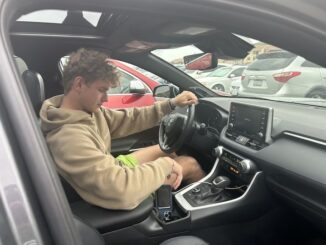
Mari Aguila was hoping to find some ice cream when she went out one night with her friends in Cambodia while studying abroad, but what she found instead was an experience that ultimately changed the trajectory of her life.
Aguila encountered the side effects of human trafficking: young girls walking the streets dressed in promiscuous clothing and men (mostly older) approaching and interacting with them. Horrified that young girls were forced to work as prostitutes, she found hope for change after visiting the International Justice Mission office in Phnom Penh.
International Justice Mission (IJM) works to liberate individuals around the world from human trafficking amongst other social justice issues and actively works with law enforcement and politicians to change legislation to promote social justice. They have collegiate chapters across the country to help raise funds and awareness of social justice issues. Aguila joined Pepperdine’s chapter as soon as she came home, first as the vice president of public relations and now as the president of the club.
“It completely changed my life,” she said. “It made me realize that I want to work for a non-profit when I graduate. It’s really up to us to make the change. … I can actually use myself to make a change.”
Aguila’s personal experience with human trafficking began long before she traveled to Cambodia.
“There was a girl I went to high school with that was actually forced into the sex trafficking trade here in LA my sophomore year of highschool,” Aguila said. “I feel like college students realize that it’s happening in Asia, it’s happening in Europe, but it is also happening in the U.S. with people our age.”
Savannah Puccio, then 16 at the time, went missing after attending a party one night in May 2013, Aguila said. The kidnappers gave her back six months later after her mother put her face on social media, television and the newspapers. Puccio’s kidnappers forced her into sex slavery during that time, chained to a bed in LA and servicing many men every night, Aguila said.
Her mother sent her to a rehab facility soon after the getting her back, six months later, to help with trauma and drug therapy. Once there, she and two other girls who had been in similar situations were once again kidnapped and trafficked from gang to gang in the LA and San Fernando valley area. Ultimately, her mother hired to rescue her and a few other girls after police did not get involved, Aguila said. KTLA and other media covered Puccio’s story.
IJM strives to be an international beacon of justice that is present abroad and in the U.S., supporter Laurie Bolthouse said. Although IJM was not involved in this specific case, these are the victims that IJM works hard at liberating every day.
Bolthouse, producer of “Trade of Innocents,” a film highlighting human trafficking in Cambodia, has supported IJM for more than 10 years.
“They set a bar in professionalism,” Bolthouse said. “They do law enforcement, help establish a better rule of law, and come alongside and beneath to help these governments establish a stronger judicial system.”
It’s only the “best of the best” that work for the organization to help trafficking victims, Aguila said.
Most jobs within the organization require a master’s degree in addition to seven years of relevant experience outside of IJM. This results in a staff of professionals who could be making a lot more money elsewhere but have decided to serve out of the good in their hearts, Bolthouse said.
“They attract the cream of the crop,” she said. “They want meaning in their work, not money. They think this is something that will provide meaningful change.”
Ultimately, IJM employees do create change. IJM rescues young women from sex trafficking around the world, prosecutes the traffickers, and works to amend legislation and assist law enforcement to work toward abolishing it completely.
“When the perpetrator actually goes to jail,” Bolthouse said, “it is a powerful, liberating tool to empower a community. Justice is served and the people can hope again.”
Collegiate chapters, including Pepperdine’s, raise awareness and funds for IJM’s mission around the world. They have participated in annual campaigns such as Stand for Freedom, which promotes being a responsible citizen. Students are encouraged to sign a petition to end modern slavery, learn about and support the legislation required, and get involved in smaller events on campus to engage with the community about these issues.


The Pepperdine chapter focuses on promoting ways individuals can help alleviate and bring awareness to human trafficking. One way is by buying Fair Trade, which indicates a product was not produced through enslaved labor and that all parties involved were paid appropriately throughout the process.
“It’s my responsibility as a global citizen,” said Taylor Baker, a junior international management major and event coordinator for the chapter. “People don’t want to talk about it or don’t know about it, but the younger people are most likely to make the change.”
Baker assisted in the awareness events already put on this year, including the Fair Trade bake sale. The sale not only raised money for IJM, but also taught students about Fair Trade and how many products that our society consumes are from the work of enslaved persons around the world.
“It’s the customer’s responsibility,” she said. “It was something I had never really known about, but something to be conscious of every day.”
Pattaraporn Saliratharibnaga, a sophomore international studies and vice president of internal networking for the chapter has been a supporter of Fair Trade and IJM from a young age.
“To realize a lot of people didn’t know what Fair Trade was, was very interesting to me,” said Saliratharibnaga, from an international high school in Thailand. “We are trying to spread the word in general about social justice issues and these events are great places for potential conversations.”
Pepperdine’s IJM chapter hopes to not only helps students be aware of social justice issues, but have a platform on which to get involved, student leaders said. More fundraisers and campaigns are in site for the near future as well as a potential club convocation to serve as a platform for conversation.
“The first step is to see that there is an issue,” Saliratharibnaga said. “If you can’t see the issue you won’t feel it, but with college that’s hard to do.”
She recommends for students to find time to watch a documentary or do some research if they have time to familiarize themselves with the extent of these issues.
“Or if you don’t have time,” she said, “Follow organizations such as IJM on social media and you’ll be in the loop as you go about your day-to-day life, keeping you aware of life outside the college bubble.”
At Pepperdine many struggle with the busyness of class and co-curriculars and couldn’t imagine adding abolishing slavery to the list. However, with the small yet impactful moves, IJM’s chapter at Pepperdine really is making a difference, members said.
“You have to pick and choose what you get involved in and what’s going to bare the most fruit for you,” Baker said. “If it’s important to you, you can make a difference no matter what it is. I think it is important at an international and local level not to be ignorant, to ask questions, and to do what I can to create change.”
Aguila said the chapter always welcomes new members with open arms that are excited about making strides towards global social justice and that interested students can visit the Facebook page under IJM-Pepperdine Chapter.
“It doesn’t take long for the issue to become really big and really overwhelming,” Bolthouse said. “You feel it demands a big answer and you believe you don’t have much to offer. You need to arrest that idea. There are things to plug into locally. Find out what those needs are. On your campus and in your city. The small thing is valuable.”
Makay Manis completed this story in Dr. Christina Littlefield’s spring 2015 Jour 241 class.



